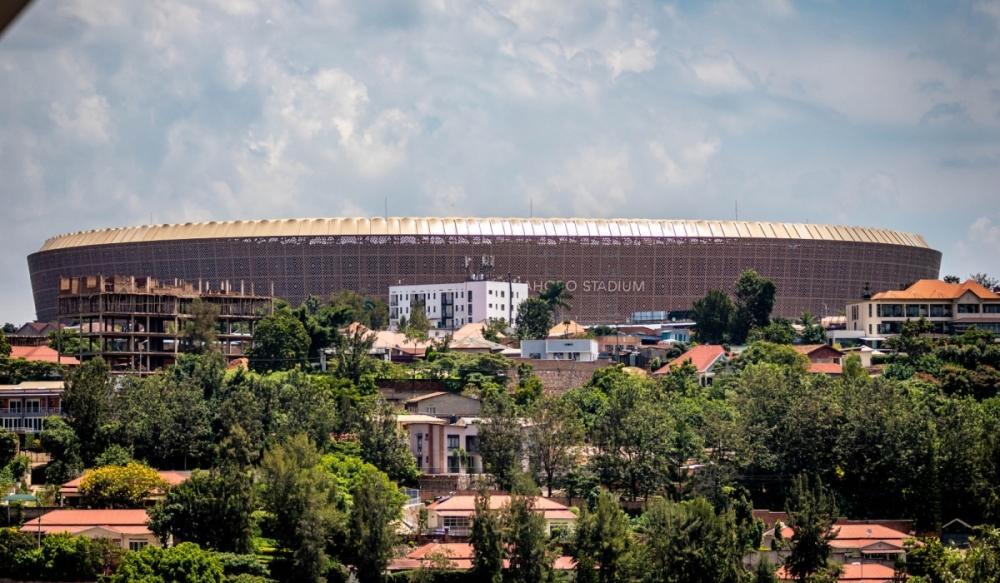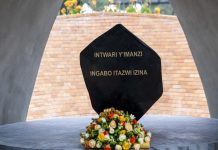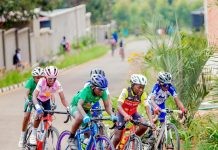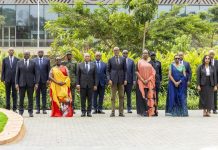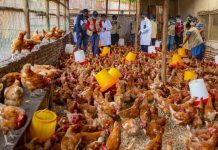Africa-Press – Rwanda. In the aftermath of the tragic genocide against the Tutsi in 1994, Rwanda emerged from the depths of despair to embarking on a journey of profound transformation.
This transformation extended beyond the realms of politics and economics, seeping into the very fabric of society, including the realm of sports.
Over the past three decades, Rwanda has undergone a remarkable metamorphosis in the sporting arena, evolving from obscurity to prominence on both regional and international stages.
This evolution, while commendable, is not devoid of challenges, yet it presents a promising trajectory towards the realization of Rwanda’s potential as a producer of world champions in the coming decades.
The foundation built over the last 30 years should be firm enough to enable Rwanda produce elite athletes in the next five to 10 years.
Prior to the genocide, Rwanda existed as a closed society, shielded from the prying eyes of the outside world. Sporting endeavors, though present, remained largely confined to the local sphere, with limited exposure and resources hindering significant progress.
However, the post-genocide era ushered in an era of openness and reform, catalyzing a dramatic shift in the landscape of Rwandan sports.
With newfound zeal and determination, Rwanda embarked on a journey of revitalization, leveraging sports as a vehicle for unity, development, and national pride.
One of the most notable transformations in Rwandan sports has been the diversification and expansion of sporting disciplines and infrastructures.
Historically dominated by football, volleyball and basketball, Rwandan sports now encompass a myriad of disciplines including cycling, tennis, and cricket, among others.
This diversification has not only broadened the horizons of Rwandan athletes but has also enriched the sporting landscape, providing opportunities for talent development and international recognition.
Central to Rwanda’s sporting renaissance has been the concerted efforts to professionalize sports administration.
The restructuring of independent governing bodies, such as the Rwanda Football Association (FERWAFA) and the Rwanda National Olympic and Sports Committee (RNOSC), has instilled a sense of accountability and transparency within the sporting ecosystem.
Furthermore, investment in state-of-the-art facilities (BK Arena, Amahoro Stadium), coupled with strategic partnerships with international federations, has elevated Rwanda’s stature as a host of prestigious sporting events, such as the Tour du Rwanda, Basketball Africa League (BAL), FIBA Afrobasket, CAVB African Nation’s Championship and the ATP Rwanda Challenger Tour, among others.
In addition to infrastructure development, Rwanda has prioritized talent identification and development through grassroots initiatives and youth programs.
The emergence of academies and training centers across the country has provided aspiring athletes with access to coaching, mentorship, and exposure to elite competition.
Moreover, initiatives aimed at promoting gender equality in sports have empowered women and girls to actively participate and excel in traditionally male-dominated sports, fostering a culture of inclusivity and diversity.
Despite these strides, Rwanda’s journey towards producing world champions is not without obstacles.
Persistent challenges such as limited funding, inadequate facilities, and logistical constraints continue to impede the full realization of Rwanda’s sporting potential.
The shameful legacy of the genocide, though gradually receding, still casts a shadow over the nation, affecting the psyche and aspirations of its citizens.
Addressing these challenges requires a multifaceted approach encompassing increased investment, enhanced infrastructure and targeted initiatives to promote participation and excellence in sports.
Looking ahead, Rwanda possesses the ingredients for cultivating a generation of world-class athletes capable of competing on the global stage.
Sustained investment in grassroots development, talent identification, and high-performance training programs will be essential in nurturing the next generation of sporting prodigies.
Fostering a culture of excellence, resilience, and sportsmanship from the grassroots to the elite level will also lay the foundation for sustained success in the long term.
Crucially, Rwanda must harness the collective will and commitment of government, civil society, and the private sector to prioritize sports as a national priority.
By fostering partnerships, mobilizing resources, and implementing strategic initiatives, Rwanda can overcome its challenges and ascend closer to the top of sporting achievement.
Highlights of 30 years:
Sports is one of the sectors largely hit by the Genocide against the Tutsi. The sports fraternity mourns former athletes, fans, media personalities and executives killed during the tragedy which cost over a million of Tutsi lives in a space of just 100 days.
Like other sectors, the country has invested billions of Rwandan francs towards the sports recovery. And there is much to celebrate considering that the country is banking on generating revenues from the sector through hosting various world-class sports conferences and tournaments as well as visibility through recent partnership deals with European giants Arsenal, Paris Saint-Germain and Bayern Munich.
In the last 30 years, Rwanda has come of age with the sort of transformation that has turned the nation into a shining light and an example of what can be achieved when people work together for a shared vision.
Rwanda is a story of “from grass to grace” in every aspect of life from politics, economics stability, security, social life including sports which ironically happens to be the go-to pass time for majority of Rwandans, old and young, men and women, rich and poor.
Competition-wise, Rwanda has been to world and African football championships, (2011 FIFA U20 World Cup, Mexico), Africa Cup of Nations 2004, Tunisia), African Nations Championship (CHAN) on different occasions as well as the regional Cecafa Championship.
In other sports, Rwanda has been to the Volleyball and beach volley World Championships. The U19 girls cricket team has been to the ICC World Cup.
Rwandan cycling has grown into an international sport, with the flagship event, Tour du Rwanda now a category 2.1 UCI race, and in just two years’ time, Rwanda is going to host the UCI World Road Championship.
Basketball has also become so big with Rwandan clubs now a permanent feature in BAL tournaments with Patriots now holding a record as the only team to have reached the semifinals of the continent’s premier club basketball championship.
Match between APR BBC playing against TIGERS BBC on March 13, 2024, at Lycee de Kigali.
Cricket has also grown from a sport on the peripheral of Rwandan sports fabric into a mainstream sport. Rwanda U19 for the first time took part in the women’s T20 World Cup held in South Africa in 2023, raising the bar high for the next generations who have now got a right to dream bigger than the history makers.
Rwanda is also emerging as a sports events destination having hosted some big conferences and competitions alike.
The country is preparing to host BAL finals at BK Arena for the fourth time in a row, cementing the fact that it is establishing itself as a home of African basketball.
Besides, Rwanda also hosted the FIFA Congress in March 2023, bringing together world football executives to Kigali. It was during the congress when Gianni Infantino was re-elected FIFA President.
The FIFA Congress was arguably the biggest sports related event to ever have taken place in Rwanda-Olivier Mugwiza
The East African nation is also establishing itself as a hub for tennis. Kigali in February hosted the ATP Rwanda Challenger 50 Tour making Rwanda only the second country to host such an international tennis event after South Africa.
The milestone achieved left a mark that the sport is only on the upward trajectory. Investments made to win the trust from the sports world as the country finds a niche in the MICE (meeting, incentive, conference or event).
Rwanda has made strides, and yes, there is big enough room to get better, but the foundation built over the past three decades is firm enough to propel Rwandan athletes to be able to realize their full potential.
There are still challenges as is everywhere else, nonetheless, there has been good improvement on and off the fields of play, but we can’t sit our laurels and think we are there, no, because the journey to the top is just beginning.


For More News And Analysis About Rwanda Follow Africa-Press

